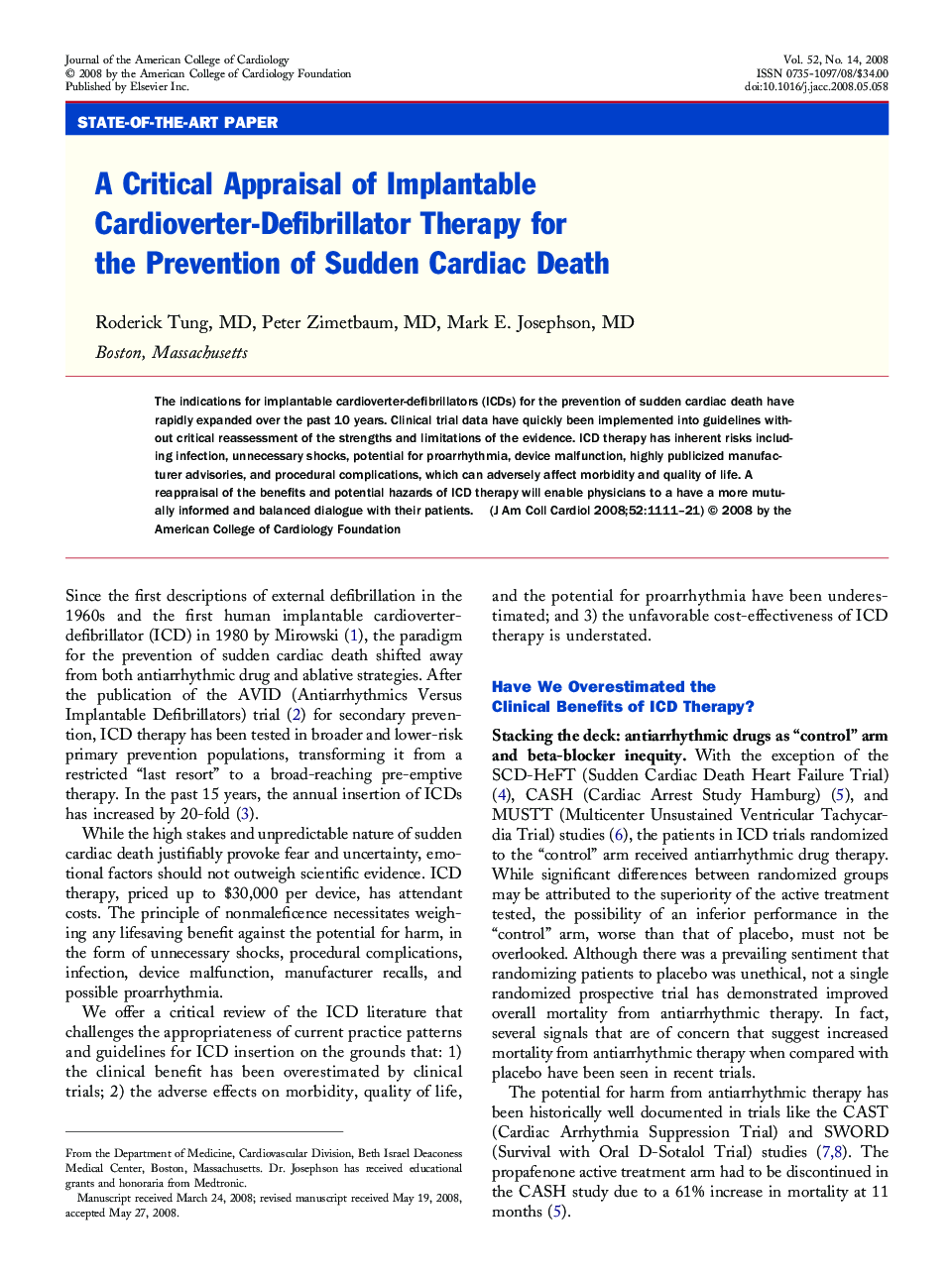| Article ID | Journal | Published Year | Pages | File Type |
|---|---|---|---|---|
| 2953250 | Journal of the American College of Cardiology | 2008 | 11 Pages |
Abstract
The indications for implantable cardioverter-defibrillators (ICDs) for the prevention of sudden cardiac death have rapidly expanded over the past 10 years. Clinical trial data have quickly been implemented into guidelines without critical reassessment of the strengths and limitations of the evidence. ICD therapy has inherent risks including infection, unnecessary shocks, potential for proarrhythmia, device malfunction, highly publicized manufacturer advisories, and procedural complications, which can adversely affect morbidity and quality of life. A reappraisal of the benefits and potential hazards of ICD therapy will enable physicians to a have a more mutually informed and balanced dialogue with their patients.
Keywords
Related Topics
Health Sciences
Medicine and Dentistry
Cardiology and Cardiovascular Medicine
Authors
Roderick Tung, Peter Zimetbaum, Mark E. Josephson,
